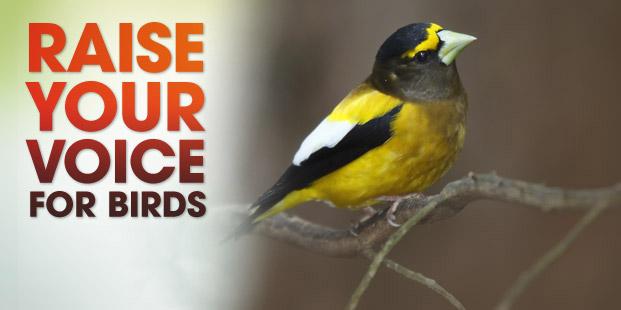-
A Message from Audubon
Could we be facing a future without some of our most beloved feathered friends?
Many of America’s most iconic and familiar bird species are declining in numbers. They are victims of growing list of threats, including disruption in our climate, conversion of pastures and
meadows to farmland, urban sprawl, pollution, logging, and other factors.Audubon has identified more than 20 birds, once abundant, whose numbers are now plummeting. Our birds are sounding a warning; for the threats to these birds are threats to the ecosystems upon which all life depends, including our own. The challenges are many, and so the solutions will be many as well. But all solutions begin with knowledge. So we ask you to support the National Audubon Society and share this with a friend or two.
Audubon’s unprecedented analysis of forty years of citizen-science bird population data from our own Christmas Bird Count plus the Breeding Bird Survey reveals alarming declines for many of our most common and beloved birds.
Since 1967 the average population of the common birds in steepest decline has fallen by 68 percent; some individual species nose-dived as much as 80 percent. All 20 birds on the national Common Birds in Decline list lost at least half their populations in just four decades.
The findings point to growing impact from the many environmental challenges our birds face, from habitat loss from development, deforestration, and conversion of land to agriculture, to climate change. Only citizen action can make a difference for the birds and the state of our future.
Which Species? Why?
The wide variety of birds affected is reason for concern. Populations of meadowlarks and other grassland birds are diving because of suburban sprawl, industrial development, and the intensification of farming over the past 50 years.
Greater Scaup and other tundra-breeding birds are succumbing to dramatic changes to their breeding habitat as the permafrost melts earlier and more temperate predators move north in a likely response to global warming. Boreal forest birds like the Boreal Chickadee face deforestation from increased insect outbreaks and fire, as well as excessive logging, drilling, and mining.
One thing these common species all share is the grim potential to become uncommon – unless we all take action to protect them and their habitat. Browse the species and learn what you can do to help.

